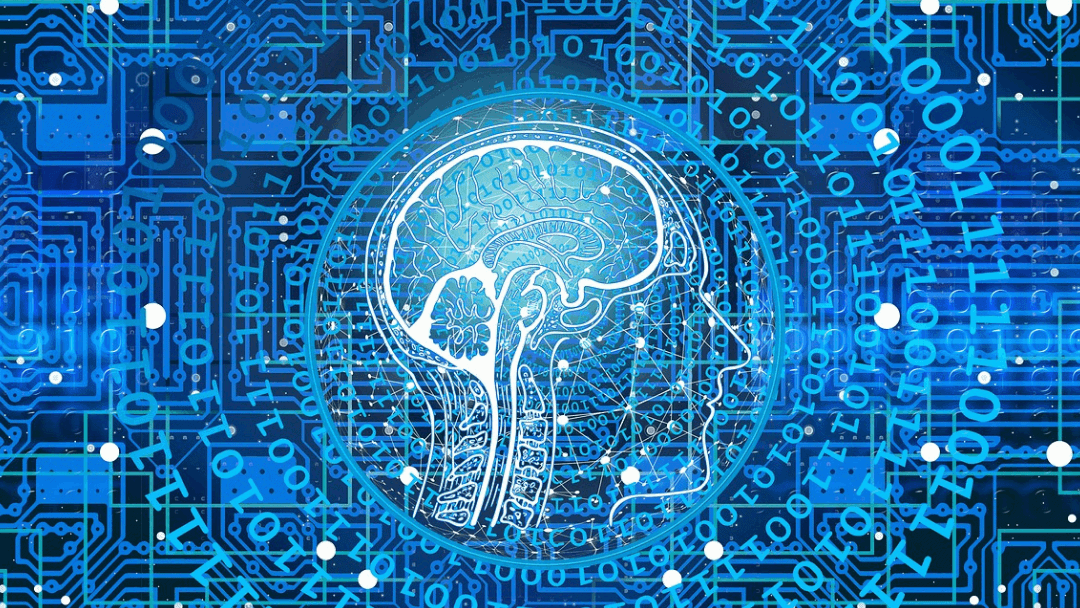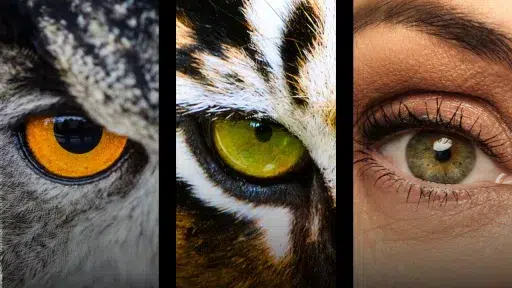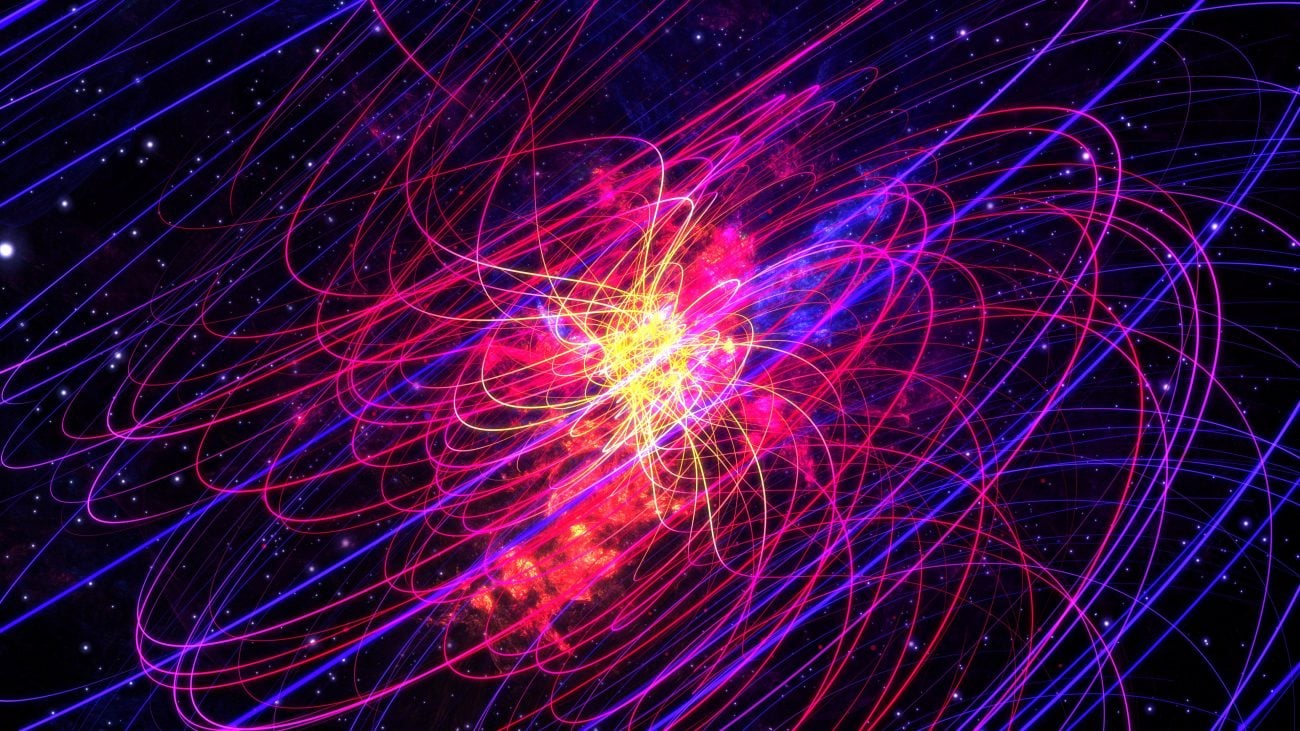This article will take you approximately 12 minutes to read. That scrollbar may be smaller than you’d hope for, but we’re sure you’ll agree that the following is worth sticking around for:
- Can maths prove God?
- Is the universe a simulation run by an advanced civilisation?
- What can light bulbs teach us about the nature of consciousness?
- Are there limits to science?
- How do our cultural ideas affect how we see ourselves?
So put your thinking caps on and enjoy the read!
I was recently sent the following video from ASAPScience:
Firstly, note how eye-catching the title is. These guys have their YouTube ranking strategy down! I’d recommend you take a look at this video before reading the rest of this article, but if Rational Religion animated videos are the only ones you watch out of principle, (thanks guys), then here is a brief summary:
The video tries to explore, using comparative probabilities, how likely it is that God exists. It first notes that numerous qualities of our universe are extremely improbable to have originated without a supernatural designer. So it gives the probability of this No God scenario happening as one in a billion, billion. Next, it says that if at least one supernatural entity did exist, the probability of the world looking like it does is pretty high—certainly a lot better than the No God hypothesis. By comparing the God/gods vs. No God hypotheses, the video says that it’s more rational to believe that at least one supernatural entity exists.
But if you think ASAPScience are coming out as devout believers, you’ll be disappointed. They then propose that the most likely scenario is the Simulation Hypothesis, in whose support they name-drop Elon Musk. The Simulation Hypothesis states that it is more likely that we are living in a computer simulation run by a super-advanced civilisation than either the God/gods or No God alternatives.
The idea is wacky, but has taken on a life on its own in the last fifteen years. It was originally proposed by Nick Bostrom in a 2003 philosophy paper. The argument has since basically taken the following form:
- Humans are rapidly progressing in their technology. Computing power that we could only dream of yesterday is today’s reality. It is therefore not unreasonable to extrapolate that a super-advanced civilisation, say, many thousands of years more advanced than we are, would have an unimaginable level of computing power available.
- Highly advanced computing power will inevitably be able to simulate conscious experience. A super-advanced civilisation therefore could make computer simulations of a world whose inhabitants think they are real. If this is the case, then there would be far more simulated realities than there would be actual realities.
- There is evidence for design in the universe. Since there are probably far more simulated realities than actual realities, it is overwhelmingly more likely that we are designed by advanced meta-humans running a computer simulation than it is that we are the creation of a Supernatural God.
It has been reported that in Silicon Valley this idea has become so widespread that some technology billionaires have been tapping young geniuses to break us out of the Matrix. Somewhere in California, a poor-Morpheus knock-off is looking for his Neo.

So, ASAPScience is following the lead of many scientists and philosophers these days by saying that we probably live in a simulation generated by a super-advanced civilisation. Note, that part of their reasoning for this is the concession that the world makes absolutely no sense if it was not designed. So either it was designed by an advanced civilisation, or by God/gods. No design is the least likely scenario, way behind the God/gods or Simulation Hypothesis scenarios.
It therefore stands that if the argument for the Simulation Hypothesis falls, theistic design is the only option left standing.
And the Simulation Hypothesis is not exactly hard to push over.
Why the Simulation Hypothesis Doesn’t Solve the Design Problem
Here’s the first push:
If an advanced civilisation designed us, then who designed them? This advanced civilisation would itself have to be highly complex and intelligent. So how likely is it that they were created by undirected processes?
If we say that they were designed by a further advanced civilisation, then who designed them? The buck has to stop somewhere. The Simulation Hypothesis does not solve the problem of design, it simply displaces it to a higher level. Displacing it is not the same as solving it.
The only real answer is to say that there must be a non-biological, eternal, transcendent entity which designed us. As it has always existed, the issue of probability does not apply, because it did not arise from a prior, less complex state. If you want a deeper explanation of this argument, you’re in luck—we’ve made a whole video on it:
The Hidden Premise
Not only does the Simulation Hypothesis fail to solve the problem of design, the whole idea rests on flawed logic. While pretending to be a simple and reasonable extrapolation of the current state of affairs, it smuggles in a premise that is unproven and absurd. This is point (2) in the above summary of the argument:
“Highly advanced computing power will inevitably be able to simulate conscious experience. A super-advanced civilisation therefore could make computer simulations of a world whose inhabitants think they are real.”
In the original paper it describes it like this:
“…mental states can supervene on [can be produced by] any of a broad class of physical substrates. Provided a system implements the right sort of computational structures and processes, it can be associated with conscious experiences.”
It doesn’t put forward any evidence for this:
“Arguments for this thesis have been given in the literature, and although it is not entirely uncontroversial, we shall here take it as a given.”
Well that’s a rather large given.
Consciousness-Raising
We are not computers. Computers are not us. We have thoughts, feelings, experiences. We are conscious. Consciousness is of an entirely different class of being than physical being is. It is non-physical, non-material.
Take a look at our brains. It is a collection of neurons, synapses, neurotransmitters, and much more besides. It is an exquisitely organised, dynamic system of electrical conductivity. And yet, there is a rather large difference between the Sodium/Potassium channels of a neuron conducting an electrical impulse, and a thought. There is a substantial difference between your sensory cortex being excited, and the experience of sensation. There is an unfathomable difference between the physical release of the hormone oxytocin and the experience of love. The firing neuron and the hormonal release must be part of the picture. But that does not mean they are all of the picture.
According to the prevalent view of things, there is no real difference between a firing neuron and an electrical wire in a light bulb. Hence why it is said that computers will one day be conscious—because we are electrical and complex, and we are conscious; they are electrical and complex, so eventually we’ll figure out how to make them conscious. The analogy is ridiculous, predicated on the idea that a specific arrangement of electrical impulses is sufficient to produce conscious experience. But the reality is that just because we share this feature in common with machinery, that does not mean that we are nothing but an electrical wiring system.
A light bulb does not think or feel. A really fancy one won’t either.
This should be obvious. Apparently it is not.

Physicalist Fantasies
Adherents to this view take the position of scientific materialism—the idea that only matter and energy exist. This materialist view of ourselves will argue that brain imaging scans and neuroscience have unravelled the secrets of consciousness. We can, for the first time in human history, see in detail how consciousness works in real time. We can see what parts of the brain light up when we talk, when we feel, when we love, when we pray. With further effort, we are told, we will discover exactly what part of the brain does what, and thus, unravel the secrets of consciousness.
This conception of the state of play is understandable, but deeply flawed. Advances in neuroscience have not unravelled the secrets of consciousness. They have instead unravelled the secrets of neuroscience. They have not taught us where the mind originates from, but rather tell us how the brain functions. To say that better imaging of nervous tissue tells us anything about what consciousness is, is to simply restate the assumption that consciousness is the direct product of specific arrangements of matter. But the gap between chemical movements in lipid layers and our thoughts, feelings, and rational insight is so large it may as well be infinite. On the one hand we have things. On the other, experience. To say the former equals the latter because it must, is simply not good enough.
But what is good enough? The obvious answer would be that given by the traditional and intuitive notion of a soul—a non-material, irreducible conscious force which animates matter to produce the mental experience we call life. This is not something new or alien to modern science. Indeed, the western scientific revolution was hugely influenced by the explicit separation of matter and spirit by René Descartes. For him, the thinking mind could not be accounted for by the material body. And since there is nothing in modern science that has refuted his key insights, there is no reason to believe that science will ever refute his key insights.
A Science of Consciousness?
To explore this, we need only reflect on our personal subjective reality. By the mere act of reflecting, we confirm that our consciousness is real. And yet, that same consciousness is ephemeral. It is a beautiful paradox of our world that the essence of our life experience is something we cannot quantify or touch. Take a look at your hands. Can these crude fingers, ever penetrate into the deep essence of being? Can material tools, or physical observation ever grasp the subtle nature of knowing? Can we ever write a mathematical equation that can adequately encapsulate free will? Evidently not.
The reason for this is that scientific thought depends wholly on material observation, rational reducibility, and physical manipulation. Consciousness is impermeable to these approaches. And what science cannot account for in material terms, it will never create. It was this understanding that led Erwin Schrödinger, awarded the 1933 Nobel Prize for Physics, to conclude:
“Consciousness cannot be accounted for in physical terms. For consciousness is absolutely fundamental. It cannot be accounted for in terms of anything else.”

Understanding that consciousness is non-physical explains why, half a millennium after the western scientific revolution, we are not an inch closer to understanding its secret. Trying to produce it anew from matter is a category error—it is not the kind of thing, like tables, toasters, or computers, that can be produced through an alchemy of physical manipulation.
We can safely extrapolate further progress in fields within which we have already made some headway. But to extrapolate scientific progress in fields that have never seen progress, and which are by their nature inaccessible to physical experimentation or mathematical description, is entirely baseless. However much materialists may hope, it is not incumbent upon nature to yield all of her secrets to our physics departments.
Putting it All Together
Let us review what we have learnt so far:
- The Simulation Hypothesis is often used to avoid the conclusion of theistic design.
- The Simulation Hypothesis relies on an extrapolation of current scientific progress to predict future scientific progress.
- Part of this extrapolation lies in assuming that scientific progress will inevitably produce progress in producing and controlling consciousness.
- That assumption is based on the idea that consciousness is a material phenomenon, and scientifically accessible.
- This assumption is both scientifically unevidenced and rationally counter-intuitive.
Thus, the extrapolation which underpins the Simulation Hypothesis is fatally flawed. As such, the whole argument collapses.
In the (admittedly underdeveloped) logic of the original video, theistic design would then be back on the table. The only issue then is whether there is one God or many gods, which is a theological debate, and one that many religious people would be eager to have.
We are Not Machines
The Simulation Hypothesis is but one small branch of the giant tree of materialism. The roots of this tree lie not in science, but in atheism—an allergy to anything Divine, and by extension, anything non-material or unseen. It is part of a cultural zeitgeist that tells us that we are machines, programmed by our genes, acting out our predetermined roles, functioning by the chance interplay of impersonal laws. Such a worldview has no foundation in the true spirit of science, but rather emerges out of a type of blindness—dazzled by the bright successes of modern physics, we see its afterimage in our vision wherever else we look. But progress in reductive physical science does not mean that its principles apply universally. Physics may explain the physical universe beautifully, but there is no reason to think that its subject matter encompasses the sum total of existence.
Realising that we are more than matter goes a long way to restoring our sense of personhood. It both empowers us and puts on us the burden of responsibility. Rather than being the product of chance natural processes, we are volitional agents whose choices will have consequences. Our moral values are real, as are our spiritual aspirations. There is no comparison between a life lived like this, and one stuck in the quagmire of materialism. Materialism’s adherents are forced into the unnatural contortion of a double life—wanting to be proud of their achievements, while believing they have no free will; being morally outraged at cruelty, while denying that objective morality exists; trying to find meaning in their life, while holding that life is accidental and purposeless.
This cognitive dissonance cannot last forever. It is already effacing our sense of self, and killing our spiritual potential. If allowed to propagate further down the generations, it will produce even more pernicious social and personal effects. It will continue to devalue human life, and to rob us of the sense of awe and wonder that our very existence demands.
For if we are not living in a simulation, but think we are, will there be any difference?
“And they ask thee concerning the soul. Say: ‘The soul is (directly created) by the command of my Lord; and of the knowledge thereof you have been given but a little.’”
Holy Qur’an, 17:84











Love this piece. Very well written Nasser. Look forward to more of your thoughts.
A very interesting well explained article where you covered all the bases. The adherents of simulation are getting closer to reality than the random-mutation adherents but they’re not there yet!
And clearly this naturally points to Islam.
5
The Simulation Theory cannot be disproven yet. There is not a single person alive who can do this. And it is more logical and more likely to be true than any religion.